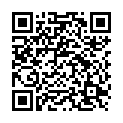|
|
|
| Module code: KI631 |
|
4V (4 hours per week) |
|
4 |
| Semester: 6 |
| Mandatory course: no |
Language of instruction:
German |
Assessment:
Written examination, written assignment on a selected topic
[updated 08.05.2008]
|
KI631 Computer Science and Communication Systems, Bachelor, ASPO 01.10.2014
, semester 6, optional course
PIBWI40 Applied Informatics, Bachelor, ASPO 01.10.2011
, semester 5, optional course, course inactive since 19.07.2011
|
60 class hours (= 45 clock hours) over a 15-week period.
The total student study time is 120 hours (equivalent to 4 ECTS credits).
There are therefore 75 hours available for class preparation and follow-up work and exam preparation.
|
Recommended prerequisites (modules):
None.
|
Recommended as prerequisite for:
|
Module coordinator:
Prof. Dr. Klaus Huckert |
Lecturer:
Prof. Dr. Klaus Huckert
[updated 01.04.2003]
|
Learning outcomes:
After completing this course students will:
- understand the business and commercial relevance of the internet
- understand web-interfacing of databases
- be aware of new technologies (e.g. XML, linking mobile phones to the internet, pervasive computing)
- be acquainted with modelling internet-based business processes
[updated 08.05.2008]
|
Module content:
1. Basic terminology
2. Internet, intranet, extranet
3. Marketing, advertising and sales promotion
4. Public relations work
5. Selling products (internet shops)
6. Web-interfacing of databases (with practical exercises)
7. Web payment systems, financial transactions
8. Customer Relationship Management / Customer services
9. Teleservices
10. Project management
11. Personnel management
12. Logistics
13. Electronic commerce and EDI/XML
14. Practical exercises on XML
15. B2B portals, e-procurement
16. E-learning
17. E-government
18. Mobile commerce
19. Management, financial planning and control of internet applications
20. Content management
21. The future of e-business
22. Pervasive computing
23. Case studies
[updated 08.05.2008]
|
Recommended or required reading:
To be announced at the beginning of the course.
[updated 13.03.2007]
|
Module offered in:
SS 2007
|


